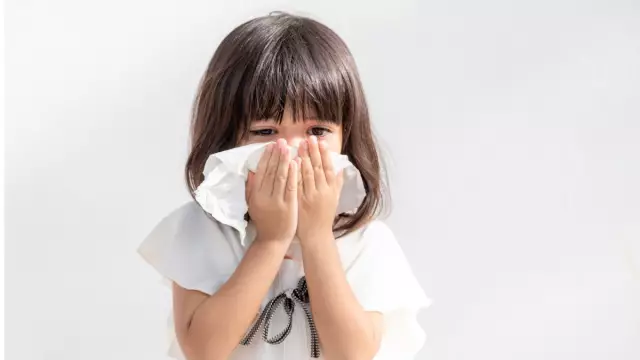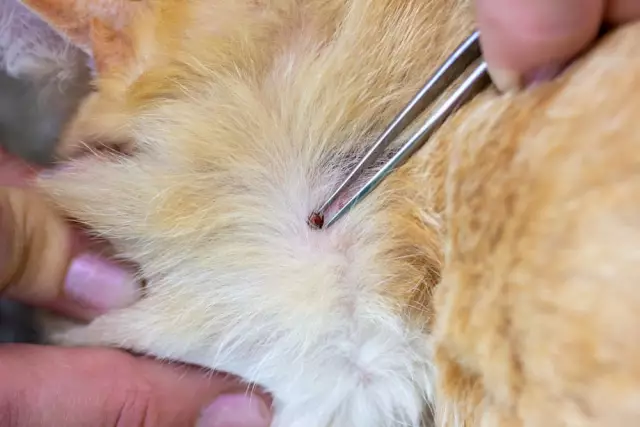- Author Rachel Wainwright wainwright@abchealthonline.com.
- Public 2023-12-15 07:39.
- Last modified 2025-11-02 20:14.
8 tips to prevent influenza
The season of active viral infections is in full swing. Anyone can get sick, but the risk of catching an ailment can and should be minimized. There are a number of rules, following which will help you either completely avoid getting the flu or SARS, or transfer them in a mild form and without significant complications. How to prevent seasonal illnesses, and will be discussed in this article.
Lead a healthy lifestyle
Improper nutrition, constant fatigue and negative emotions, bad habits (smoking, drinking alcohol, etc.), lack of fresh air and physical activity have a bad effect on the state of the immune system. A person exposed to regular stress, eating mainly fast food, not getting enough sleep and prone to a sedentary lifestyle is at risk of contracting seasonal infection. His body spends too much effort on fighting negative factors and cannot provide adequate resistance to viruses.
The problem is that a healthy lifestyle (HLS) is not formed instantly, "at the snap of your fingers": it requires consistent efforts. A healthy lifestyle is not only compliance with the rules of nutrition and daily regimen, but also a certain view of how you need to exist in the world around you. Such an attitude towards oneself and one's health should be brought up in a person from childhood or developed over the years (in the process of realizing the corresponding need). That is why it is extremely important that adults live according to the principles of healthy lifestyle and be an example for their children.

Source: depositphotos.com
Harden
Hardening procedures are a real way to protect the body from seasonal infections. The options for strengthening the immune system can be different; the choice depends on the state of health of the person, whether he has chronic ailments, as well as the availability of a particular method.
When starting to harden the body, two conditions should be taken into account. First, you need to gradually accustom yourself to low temperatures: an attempt to start right away with walking barefoot in the snow or ice swimming is likely to lead to health problems. Secondly, for an unaccustomed organism, hardening procedures are a serious stress, and by starting them in the midst of the "flu season", you can achieve the opposite result to the expected one. It is more correct to start hardening in the summer, after consulting a doctor.

Source: depositphotos.com
Get vaccinated
Vaccination is the most effective way to prevent influenza. However, the causative agent of the disease has one feature: it mutates very quickly, and the strain, which is the most dangerous in the current season, may be completely insensitive to the vaccine used for immunization six months or a year ago. You need to be vaccinated with exactly the drug that is recommended taking into account the seasonal activity of influenza strains. In addition, several strains are often active at once, and vaccination against one or even several of them does not exclude the possibility of infection with another strain.
The flu vaccine has contraindications. It is necessary to first consult with the attending physician for patients suffering from allergic reactions (especially intolerance to chicken protein), diseases of the endocrine and nervous systems, kidney pathologies, bronchial asthma, anemia, arterial hypertension and heart failure. In addition, the procedure should be postponed if a person has a cold, complains of fever or catarrhal symptoms.
It takes time for a flu shot to give the expected result, that is, to induce the formation of immunity to infection. Therefore, it should be done a month and a half before the expected start of the epidemic.

Source: depositphotos.com
Refuse to visit crowded places
Seasonal infections are transmitted by airborne droplets. This means that the most likely source of infection is a sick (coughing and sneezing) person. The conclusion is obvious: the less often you contact others, the more surely you will remain healthy.
Of course, in the “flu season” life goes on, and you still have to go to work. However, you can temporarily stop visiting large shopping centers, cultural events and other crowded places. And such a measure as refusing to travel in crowded vehicles in favor of walking will undoubtedly benefit health.

Source: depositphotos.com
Observe the rules of personal hygiene
Another of the most common ways of spreading viruses is through the hands of a sick person. By touching various objects, he also makes them a source of infection. To reduce the likelihood of getting a virus, you must:
- wash your hands as often and thoroughly as possible, and also, when outside the home, have wet sanitary napkins with you and do not hesitate to use them;
- do not touch your face with unwashed hands;
- do not eat on the street or in catering establishments. If it is impossible to do without this, you need to give preference to products that are sold in sealed packaging, and eat them, holding only the wrapper;
- when paying for purchases, use mainly bank cards;
- try not to touch door handles, handrails in vehicles, etc without gloves;
- temporarily refuse to shake hands.
Separately, it should be said about the use of gauze bandages and hygienic masks. Most experts claim that these devices are ineffective for healthy people, but it makes sense to use them for those who are sick in order to reduce the risk of infecting others when coughing and sneezing. If a sick person does not have a bandage, he should sneeze and cough, covering his face with a handkerchief or sleeve of clothing (not the palm).

Source: depositphotos.com
Maintain an optimal indoor climate
Seasonal infection viruses thrive in dry, warm and still air, but they quickly degrade in the wind, in a cool and humid atmosphere. The "flu period" usually occurs in the autumn-winter season, when people try not to go outside unless absolutely necessary, and the infection spreads especially actively in stuffy rooms.
To reduce the likelihood of infection, you should ventilate living and industrial areas as often as possible. It is better to dress warmly, but not to turn on additional household heaters that dry the air. It is useful to use humidifiers, wash floors. The optimum temperature in a room or office is no more than 20 ° C, and the humidity should be at least 50%. A big plus is the presence of an aquarium and indoor plants in the room.

Source: depositphotos.com
Moisturize the mucous membranes of the respiratory system
The surface of the upper respiratory tract (internal cavities of the nose, bronchi, etc.) constantly secretes mucus, which performs barrier functions, protecting the body from the penetration of dust and pathogens. Drying out of the mucous membranes deprives a person of natural protection, since viruses that enter the mouth and nose freely penetrate into the body, and the person becomes ill.
Dryness of the mucous membranes may occur due to an unsuitable indoor climate or the use of certain medications. During the period of activity of pathogens of seasonal infections, it is necessary to ensure constant hydration of the internal cavities of the nose. To do this, use a self-prepared solution of table or sea salt (one teaspoon per one liter of boiled water), ready-made pharmaceutical preparations of a similar composition or physiological solution. The liquid should be poured into any bottle (for example, from under the pharmacy drops in the form of a spray) and irrigate the nasal cavity as often as possible, especially if you are in a crowded place or stuffy room. With the same solutions, it is necessary to rinse your mouth and throat several times a day.

Source: depositphotos.com
Refuse from drugs that "stimulate immunity"
To date, pharmacy chains offer widely advertised drugs, the components of which supposedly have high immunostimulating activity. In fact, none of these drugs have passed full-fledged clinical trials, and their "miraculous" antiviral effect is simply not confirmed by anything. From the point of view of treatment and prevention of seasonal infections, these drugs (very expensive) are nothing more than a placebo.
But this is not so bad: the side effects of popular “immunostimulants” are also not well understood. So their use is not only useless, but also dangerous.
Prevention of influenza and ARVI is a very important matter, but they need to be dealt with competently. The main thing is to remember that no one is more interested in your health and well-being than you, and to organize all measures to protect against seasonal viral infections in time.
YouTube video related to the article:

Maria Kulkes Medical journalist About the author
Education: First Moscow State Medical University named after I. M. Sechenov, specialty "General Medicine".
Found a mistake in the text? Select it and press Ctrl + Enter.






